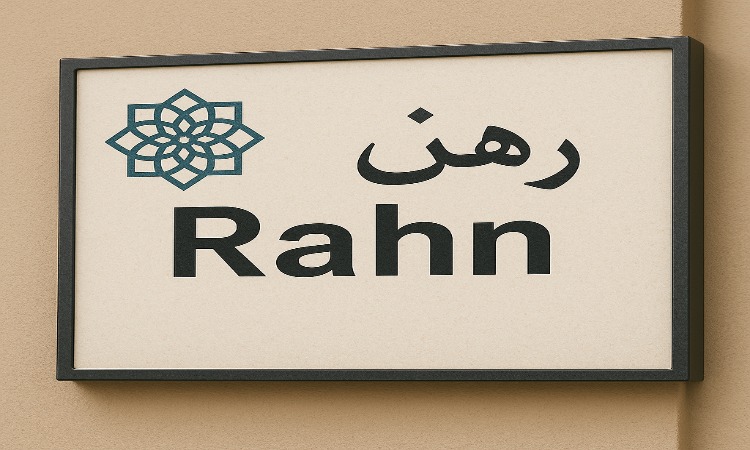Understanding Rahn in Islamic Finance
1. Introduction: Meaning of Rahn
The term Rahn (Arabic: رهن) linguistically means constancy, holding, or binding. Juristically, rahn refers to the act of pledging a valuable item as collateral to secure a debt or obligation. If the debtor defaults, the pledged item may be sold to recover the debt.
The Shafi’is define rahn as the use of a non-fungible item as insurance for a fungible debt, from which the debt can be recovered if left unpaid. This definition excludes usufruct (temporary use or benefit), as it is transient and does not qualify as durable security. In contrast, the Malikis define rahn as the act of taking a valued property from its owner as insurance for a debt that has matured or is close to maturity. Unlike the Shafi’is, the Malikis permit a broader range of pledged items, including usufructs, provided they are time-bound or task-specific and their value is accounted for in the debt.
The contract is different from kafalah (guarantee), which relies on a person’s creditworthiness rather than property. The essence of rahn lies in its ability to provide tangible assurance for creditors and financial access for debtors without resorting to interest-based systems.
2. Legitimacy from the Sharia Perspective
The legitimacy of rahn is established through the Quran, Sunnah, and scholarly consensus. In Surah Al-Baqarah (2:283), Allah says: “And if you are on a journey and cannot find a scribe, then let there be a pledge taken.” While some early jurists like Mujahid and the Zahiris limited its use to travel, the majority of scholars agree it is permissible in all circumstances.
The Sunnah provides further validation. A’ishah (may Allah be pleased with her) reported that the Prophet Muhammad (peace be upon him) pawned his shield to a Jewish merchant in exchange for food. Anas (may Allah be pleased with him) narrated a similar incident. These narrations confirm the Prophet's use of rahn in daily transactions, reinforcing its permissibility. Jurists agree that while not obligatory, rahn is a valid and practical method of securing debts.
3. Principles of Pledge (Rahn)
The principles governing the pledge (rahn) contract in Islamic finance revolve around five main aspects:
1. Contracting Parties: A valid rahn contract involves two parties: the debtor (who offers the asset) and the creditor (who receives it as security). Both parties must be legally competent under Sharia, meaning they must be of sound mind, adults, and have the authority to enter into contracts.
2. Underlying Debt: The debt for which the pledge is made must be valid and binding. It should be a matured or nearly matured liability, clearly defined and acknowledged by both parties. It must be of a nature that allows the creditor to recover the debt from the pledged asset if the debtor fails to repay.
3. Pledged Object: The pledged item must be a valuable asset that can be lawfully owned, sold, and used to secure the debt. It must be clearly identified by name, description, or distinguishing features. The object must be deliverable, whether physically or constructively, to the creditor or a trustee.
4. Possession and Ownership: The creditor's possession of the pledged asset is intended to ensure the realization of the debt. While the creditor holds possession, ownership remains with the debtor. The asset can be kept with the creditor, the debtor, or a neutral third party (trustee). The debtor may pledge someone else’s asset only with that person’s express permission. Any costs related to the safekeeping or maintenance of the pledged item must be borne by the debtor. The creditor is not entitled to use the pledged asset, even with the debtor’s permission, as the asset is held in trust. If the asset is damaged or lost without negligence on the creditor’s part, the creditor is not liable. However, the creditor can request that the debtor insure the asset, with the benefit of the insurance assigned to the creditor.
5. Enforcement: If the debtor defaults on the repayment, the creditor has the right to initiate the sale of the pledged item to recover the debt. The creditor may only take proceeds equivalent to the outstanding debt and must return any surplus to the debtor. The creditor does not have the right to claim ownership of the asset in settlement of the debt unless a prior agreement allows for a formal sale and set-off procedure.
4. Conditions for the Validity of Rahn
The validity of rahn depends on several essential conditions:
i. Contracting Parties: Both debtor and creditor must be of sound mind, legally competent, and capable of understanding contractual obligations. Minors and mentally incompetent individuals require a guardian to act on their behalf, under strict guidelines.
ii. Sighah (Offer and Acceptance): The contract must involve a clear and unconditional exchange of offer and acceptance. Suspended or conditional contracts are invalid.
iii. Underlying Debt: The debt must be:
- Binding,
- Established,
- Due or about to be due,
- Known in amount and nature.
Invalid debts (e.g., those based on future promises or ambiguous liabilities) cannot form the basis of rahn.
iv. Pawned Object: The asset must be:
- Lawfully ownable and salable,
- Deliverable,
- Identifiable,
- Separate from other properties,
- In the debtor’s ownership or with their permission.
Delivery and receipt are essential for the contract to become binding, either through physical possession or constructive access (especially for immovable properties).
5. Forms of Rahn
Rahn may occur in three forms:
- Originating from a debt-generating contract: For example, a buyer may pledge an item as part of a deferred payment sale. All schools consider this valid.
- After a debt has been established: Pledging an item after the loan or sale is complete is also unanimously accepted.
- Before a debt is created: Permissible according to the Malikis and Hanafis, who view rahn as insurance for a legal right, but invalid according to the Shafi’is and most Hanbalis, who argue a pledge cannot precede a legal obligation.
These forms reflect both flexibility and juristic differences in structuring rahn.
6. Principles of Operation
The contract of rahn functions as follows:
- The debtor offers a valuable item to the creditor as security.
- Upon mutual agreement, the creditor receives the item or it is held by a mutually agreed trustee.
- The creditor does not own the item but holds it in trust.
- If the debtor defaults, the item may be sold (typically via judicial approval), and the proceeds are used to settle the debt.
- Any surplus must be returned to the debtor.
The creditor cannot use the pledged property without consent. In certain cases (e.g., animals), use is allowed in exchange for maintenance costs. Debtors may not unilaterally revoke the contract once it is binding.
7. Rahn in Commercial Transactions
In modern commercial settings, rahn operates through a clear transactional process:
- A debtor applies for financing (e.g., Qard or Murabahah).
- The creditor requests a pledge as security.
- A valuable asset is identified, valued, and documented.
- The asset is delivered or its control is legally transferred.
- Upon repayment, the asset is returned; otherwise, it may be sold.
The contract provides legal security and facilitates credit access while ensuring Sharia compliance. It can be used in multi-party contracts, with provisions on shared ownership, trustee responsibilities, and priority rights in case of liquidation.
8. Modern-Day Application in Islamic Finance
Rahn is widely applied as a security in various Islamic finance contracts and products, including:
- Murabahah financing (e.g., car and home purchases),
- Benevolent loans (Qard),
- Trade and inventory financing,
- Sukuk (Islamic bonds) backed by pledged assets,
- Microfinance schemes for small entrepreneurs.
Financial institutions leverage rahn to mitigate credit risk and ensure repayment while preserving the ethical foundations of Islamic banking.
9. Conclusion
Rahn offers a Sharia-compliant solution for securing financial obligations. Its principles protect both creditor and debtor interests, encourage trust, and enable access to capital without compromising Islamic values. From individual transactions to structured financing, rahn continues to be an essential mechanism in the evolving landscape of Islamic finance. It ensures economic justice, transparency, and risk mitigation while upholding Sharia.










